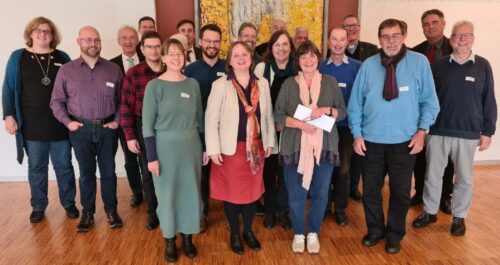Poland: While initiatives against domestic violence show promise, urgent steps needed to respond to other forms of violence against women, says new report
Multi-agency responses to domestic violence, another fundamental convention requirement, find expression in Poland’s “Blue Card” procedure, whereby local interdisciplinary teams deliver support and protection to victims of domestic violence. Efforts also have been made to make the criminal justice process easier on victims of rape and sexual violence by limiting the number of times they are asked to give statements and by requiring prosecution services to prosecute rape cases out of their own motion.
The report – published with the comments of the government and based on detailed research and a country visit to Poland late last year – also lauds growing case law based on the specific criminal offence of stalking, introduced in 2011, as well as the introduction of innovative criminal offences that capture the offline and online manifestations of harassment and stalking as well as the impersonation of another person online, including the possibility of increasing the sentence where this has led to a victim’s suicide.
Despite such progress, greater steps to stop sexual violence, rape and sexual harassment must be taken, according to GREVIO, starting with changing the definition of rape itself. As with some other previously monitored countries, Poland should align the definition of rape with convention requirements, which move away from a force-based definition to one covering all non-consensual sexual acts. Without a consent-based definition of rape in criminal law, prosecutors will “invariably decide” against seeking an indictment in cases where the sexual act is undisputed, but consent is not, GREVIO stresses. Out of the 17 previously monitored countries, three have an offence of sexual violence based entirely on lack of consent: Belgium, Malta, and Sweden.
Furthermore, rape crisis and sexual violence centres offering medical care, high-quality forensic examination and immediate, short- and long-term trauma support delivered by trained professionals are lacking. Such services should be geographically spread and available in sufficient numbers, accessible to victims living in both rural areas and cities. In addition, the reproductive choice of women rape victims should not be a barrier to information and support from these services. Poland is not alone in this regard. As outlined in GREVIO’s mid-term horizontal review, published in May this year, the convention and its monitoring have led to the establishment of such centres in countries like Austria and Finland, highlighting how the convention system leads to direct improvements for women and girls.
The report calls for better training for law enforcement, as police may be the first to come into contact with rape victims and must provide them with information about support services and take them to medical facilities to secure forensic evidence. Operational procedures exist but are not always applied by law enforcement and medical staff. A lack in specialisation of medical staff in delivering medical and forensic care is “particularly problematic”, as well, with research showing that, while women victims rarely report rape, they are likely to turn to healthcare services.
To offer women and girls victims of rape and sexual the comprehensive support they need, GREVIO encourages Poland to adopt more initiatives such as the “Intimate Prevention Point” in Poznan, which provides 24-hour free gynaecological consultation and examination, including support for victims of sexual violence, access to emergency contraception and screening for STDs. Indeed, this service is accessible to people living in the city without health insurance, including irregular migrant women who are not eligible for free healthcare.
Given particular risks to women and girls seeking asylum, GREVIO urges the Polish authorities to ensure “effective screening” of women asylum seekers entering the asylum procedure and prior to their placement in any detention facilities/guarded centres for foreigners for vulnerabilities, including their experiences or risk of gender-based violence such as domestic violence, sexual violence, forced marriage and honour-related violence, that would require safe accommodation and/or special support services and counselling.
GREVIO is also concerned over a lack of enough dialogue between relevant government agencies and civil society groups working to prevent and combat violence against women and independent women’s rights NGOs, which need “greater recognition and support” as key partners in preventing and combating violence against women, the report stresses. Tapping into their experiences and involving them in policy design and service provision can contribute to a more comprehensive approach to all forms of violence against women covered by the convention. Such a comprehensive approach is urgently needed and would require enhanced inter-institutional cooperation mechanisms that ensure women’s safety and protection across the country, and with a focus on their specific needs, the report notes. The need to base such initiatives on the understanding of the link between the prevalence of violence against women and the structural inequalities between women and men and raising awareness of and counteracting the negative stereotypes against women which legitimise and sustain violence against women is another key finding of the report.
Council of Europe
Avenue de l’Europe
F67075 Strasbourg Cedex
Telefon: +33 (3) 88412000
http://www.coe.int
Media officer
Telefon: +33 (698) 3764-04
E-Mail: panos.kakaviatos@coe.int
![]()



